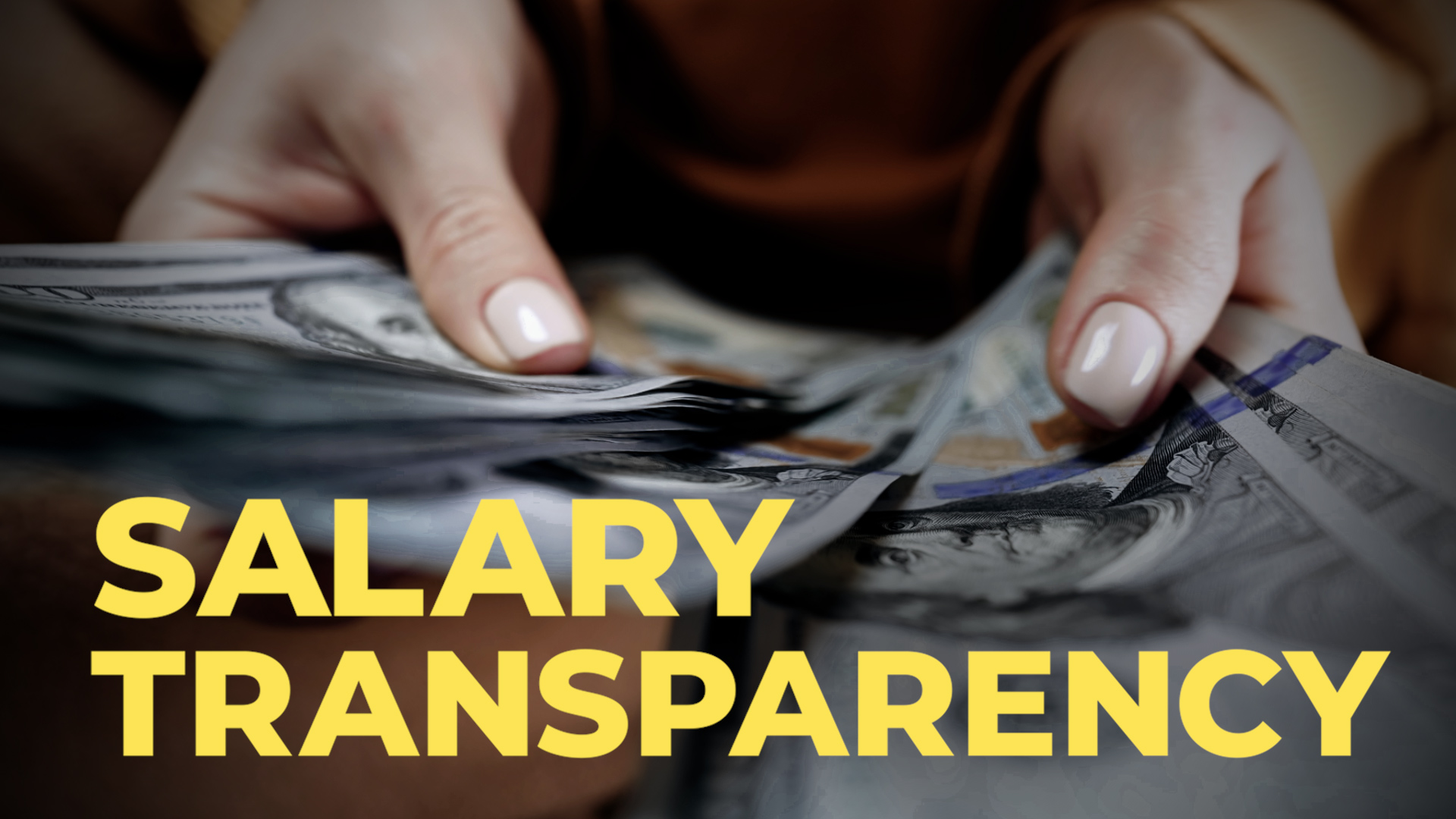
JIMMIE JOHNSON: 2022 IS BEING HAILED AS THE YEAR OF ‘SALARY TRANSPARENCY.
INC MAGAZINE AND LINKEDIN – CALL IT A GAME-CHANGER.
AND FOR MORE THAN 74 MILLION AMERICANS – SOME FORM OF TRANSPARENCY LAW IS ALREADY ON THE BOOKS.
WITH NEW YORK POISED TO BECOME THE LARGEST CITY IN THE COUNTRY TO REQUIRE EMPLOYERS TO PUBLISH THE SALARY RANGE FOR EVERY – JOB – PROMOTION – AND TRANSFER OPPORTUNITY.
IT’S A MOVE THAT HASN’T COME WITHOUT CONTROVERSY.
RANDY PEERS: ”I would hate to see businesses make a decision to either leave New York and or not relocate here to New York because of these types of burdens.”
JOHNSON: SO – WHAT’S SPEARHEADING THE MOVEMENT? AND IS IT EVEN WORTH IT? LET ME EXPLAIN.
AS YOUNGER PEOPLE ENTER THE WORKFORCE – SO DO THEIR SOCIAL MEDIA HABITS. MILLENNIALS AND GEN-Z ARE LEVERAGING PLATFORMS LIKE TIKTOK TO CALL-OUT PAY DISPARITIES.
TIKTOK VIDEO: “This is way too much work for $23/hour. You’re getting paid 23? Character 1: Yeah. I’m sure you get paid more since you’ve been with the company for 15, though. Hey Jack, you just got hired. How much you’re getting paid? It might not be that much, though, since he’s just an intern. $26/hr.”
KALEEM: ”People are more comfortable calling these things out on social media. And I think that has definitely led to that movement.”
JOHNSON: TWO DECADES AGO RAMEEZ KALEEM QUIT HIS JOB TO MAKE PAY TRANSPARENCY A PRIORITY. FOUNDING 3-R STRATEGY.
KALEEM: “The main objective of pay transparency is to make sure that we have a fair and consistent way in how we manage pay for employees and making sure that there’s equity.”
JOHNSON: IT’S NOT JUST ABOUT COMPANIES BEING UPFRONT ABOUT WAGES.
THERE ARE ALSO BENEFITS – WHICH KALEEM SAYS OFTEN GET OVERLOOKED.
HE SAYS THERE ARE THREE ASPECTS OF PAY TRANSPARENCY.
KALEEM: “It’s what do we pay our employees? Why do we manage pay the way we do? And, how do we make those pay decisions?”
JOHNSON: BUT SKEPTICS FEAR SUCH DISCLOSURES CAN DO MORE HARM THAN GOOD.
HOLLY BRITTINGHAM: ”I think it’s incredibly thorny. I think you can have people in the same job, but if you want a performance-based culture, some people are going to be better performers than others. So I think the question of equity and fairness is really tough.”
JOHNSON: KALEEM’S RESPONSE TO THOSE CRITICISMS – GIVE EMPLOYEES SOME CONTROL.
HE SAYS THEY SHOULD DETERMINE WHETHER OR NOT TO DISCLOSE THEIR SALARY TO CO-WORKERS.
KALEEM: “It’s their responsibility to make sure that what we pay our employees is fair, it’s equitable, and it’s consistent. And then it’s the choice of the employee, whether they want to disclose this information or not.”>
JOHNSON: OLDER GENERATIONS ARE LESS LIKELY TO BUY INTO THE IDEA, ACCORDING TO A RECENT NATIONWIDE SURVEY THEIR YOUNGER COUNTERPARTS [MILLENNIALS AND GENZ] ARE TWO TIMES MORE LIKELY TO SHARE THEIR SALARIES WITH COLLEAGUES.






